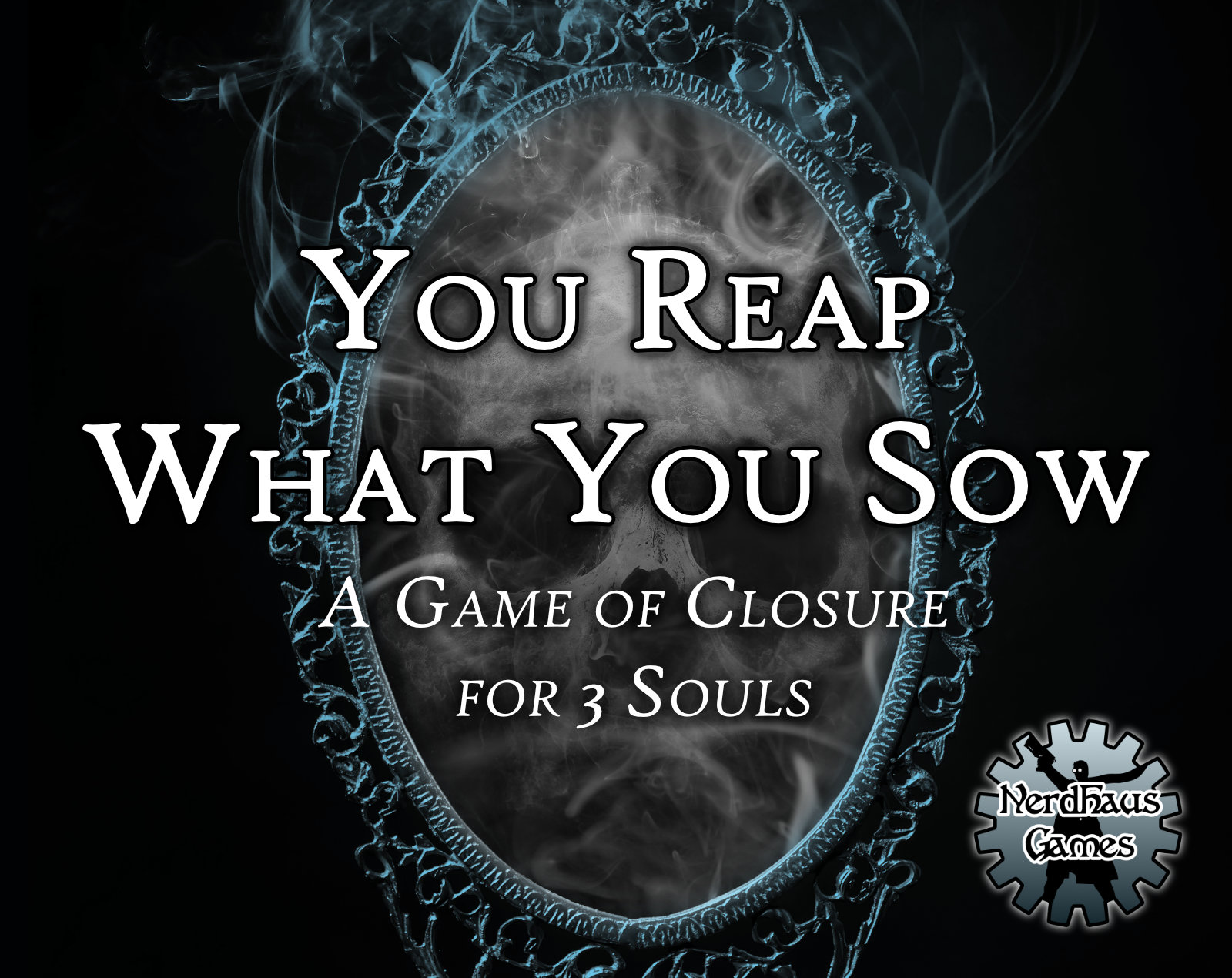I’m so glad to bring you You Reap What You Sow, a new narrative one-shot RPG that explores the uneasy alliance of three undead beings all descended from one human life. How did you die, why did you get separated, and how can you come to some kind of closure before the Reapers put you back in your grave(s)? Grab a deck of cards and 2 friends to find out!
This premise started off as a bit of a joke: if your soul got reincarnated but your body was raised by a necromancer, which one is the real you? And if your mind was harvested into a Frankenstein’s-Creature-type promethean, do we trust the soul, the body, or the brain? A real Corpse of Theseus situation. The longer I thought about it, the less it was a joke. I was already developing what would become Boneyard, a domino-based game about Reapers & Omens guarding the line between life and death and guiding lost souls into a final rest they do not fully understand, and thought that a game exploring this undead life-triangle trying to solve their potential murder before the Reapers get them could be a great way to explore that world. Marry it to a Descended from the Queen framework of cards and prompts with enough additional game added on with the Demise, Connection, and Reaper countdown clocks and voila! You Reap What You Sow came down from the ceiling slab while I shouted “It’s (technically) alive!”
This version is still in development but is 100% playable. I’ve run it with some of my people and incorporated their feedback, and we’re looking at the final game perhaps being a hybrid of book and custom card deck or exclusively custom-card-based. I always like to include the option of playing with poker cards whenever possible, as I understand both international shipping and keeping track of yet another custom deck can be a pain, but let me know if you have strong feelings one way or another regarding the future format of the game. Thanks for taking a look and may you have as many days as you want between now and when you meet the Reapers.

